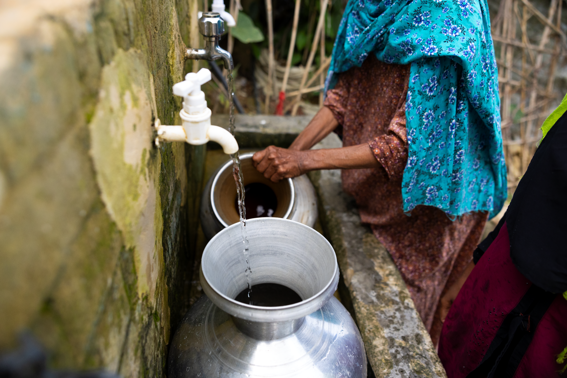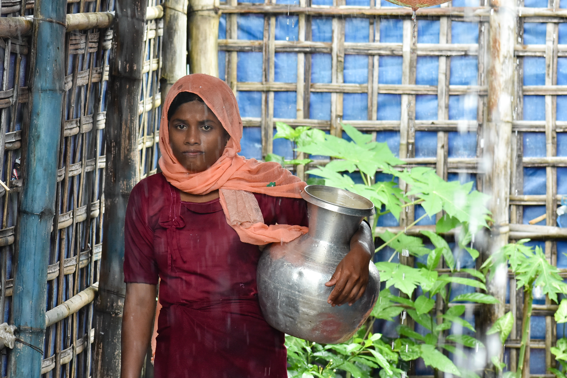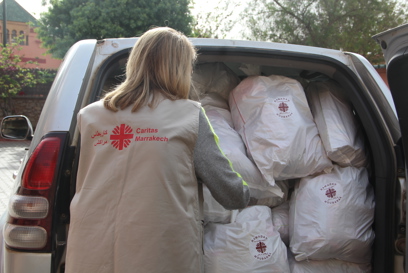The past twelve months has seen numerous conflicts and disasters engulf the world.
The war in Ukraine and Gaza continues to cause widespread devastation, with many families uprooted from their homes, with no access to food or water.
Globally, the number of people forced from their homes due to conflict and climate change has reached an all-time high, with more than 120 million displaced people worldwide.
The food crisis continues to worsen across much of Africa, with famine in parts of Northern Darfur in Sudan - only the third time famine has been officially declared in the past 20 years.
Having the resources to respond effectively and efficiently before, during and after emergencies are crucial for saving lives and rebuilding communities. Two of the most crucial resources are food and water.
How is access to food and water impacted by emergencies?
In the wake of a disaster, access to emergency food and water is a matter of life and death. Food and clean water are basic needs that can become incredibly scarce in crisis situations. Without immediate and adequate relief, affected communities face severe malnutrition, dehydration, and even disease outbreaks.
When a disaster strikes, its impact on food and water supply can be catastrophic. Natural disasters such as floods, droughts and earthquakes can destroy crops, contaminate water sources and disrupt supply chains.
How does conflict impact food and water?
Conflict and war can cut off access to clean water and food for displaced families. People are left without access to the basic necessities for survival, leading to malnutrition, dehydration, and in some cases, starvation.
Conflict zones often face blockades or restricted access, which hamper the movement of food products to markets and consumers. Disruptions in transportation and supply chains can lead to higher food prices due to scarcity and increased logistical costs. The economic instability caused by conflict can result in inflation and erratic food prices, making it difficult for people to afford food.
In Gaza, vulnerable families are facing both displacement and hunger, with over 96% of the population facing high food insecurity.
Why is clean water so critical during an emergency?
Access to clean water is critical in emergency situations. Contaminated water sources can lead to outbreaks of diseases such as cholera and typhoid, which can spread rapidly in the aftermath of a disaster. Clean water is essential for:

Displaced people in Cox's Bazar refugee camp in Bangladesh rely on clean water access to stay healthy and prevent the spread of water borne diseases. Photo: Mark Harding/Caritas Australia
Preventing Waterborne Diseases
Ensuring that water is safe to drink and use is fundamental to preventing the spread of disease.

Temporary shelters housing people displaced by the conflict in Gaza. Photo credit: CRS.
Maintaining Hygiene
Good hygiene helps to prevent the spread of infections and reduces the risk of disease transmission, particularly in densely-populated areas.

Jamila is a Rohingya woman living in Cox's Bazar refugee camp. Photo: Caritas Bangladesh
Water is life
Water is integral to all aspects of daily life, from cooking food to cleaning
How Caritas Australia responds to emergencies
Caritas Australia works with our network of local partners across the globe to ensure that emergency food and water supplies reach those in need swiftly. This involves pre-positioning supplies, conducting needs assessment and partnering with local organisations to efficiently reach those who need urgent and immediate support.
As a member of Caritas Internationalis, one of the largest humanitarian networks in the world, we are able to reach where the need is greatest and respond to emergencies.
We work with local partners and organisations to distribute food and clean water to those in need.
Beyond immediate relief, we also focus on long-term recovery by supporting sustainable solutions for food and water security. This includes rebuilding sustainable agricultural training, improving water management systems, and supporting community disaster risk reduction activities to mitigate the impact of crises.
Your donation to our Emergency Response Appeal can help people affected by disasters and emergencies around the world.

















